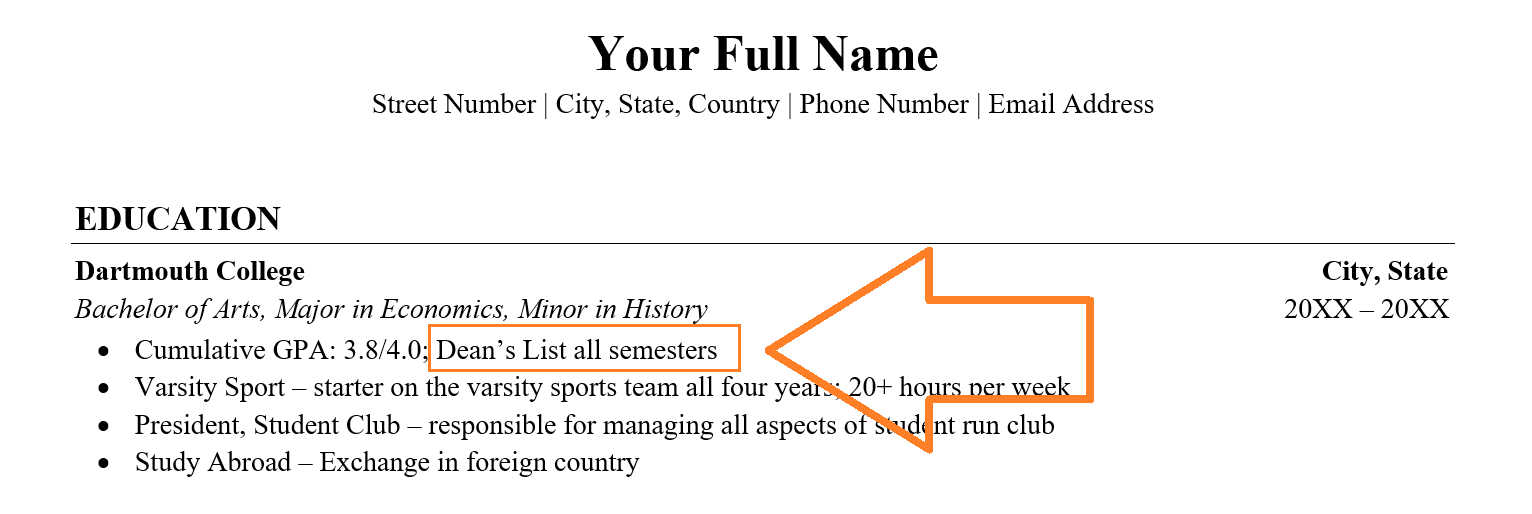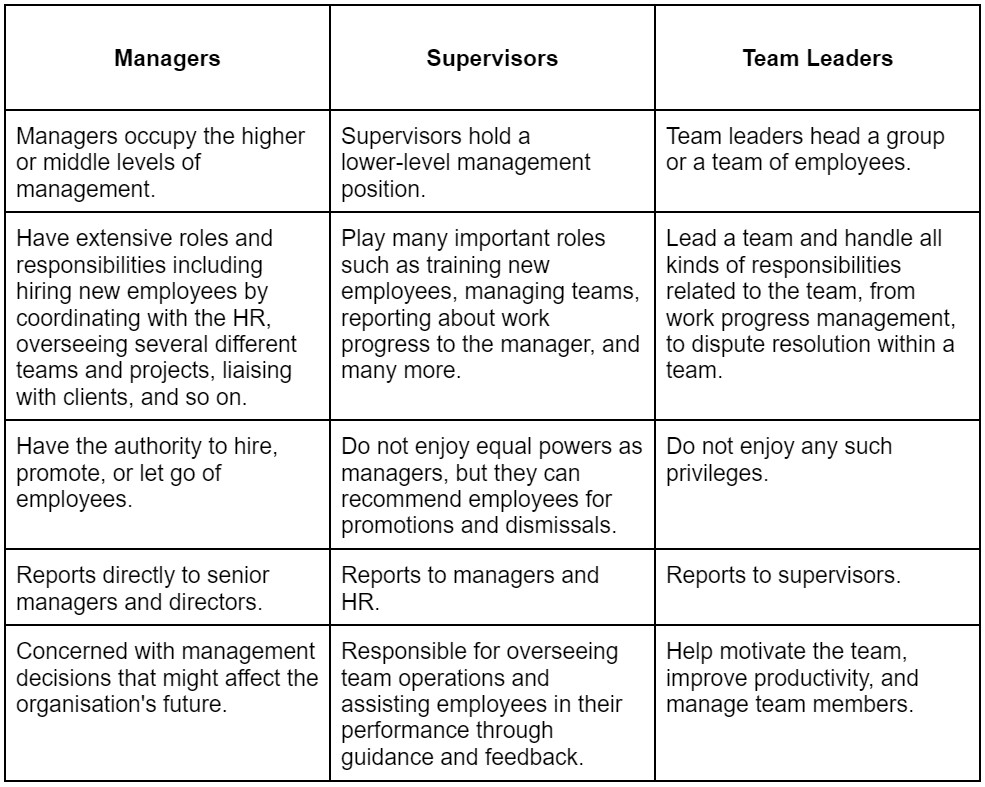
Let’s face it, business involves numbers and calculations. Major corporations and companies use quantitative studies in various stages in their day-to-day operations, to make sure they’re bringing home the bacon.
This use of quantitative data is crucial for CEOs and investors to conceptualise a project, profit margins, sales data, marketing conversion rates, and profits per sale. Like how peanut butter and jam make for a great sandwich, one must have good mathematical skills and quantitative data to make decisions that result in profits, with the least amount of risk.
Some of the types of mathematical data involve percentages, averages, statistical data, and median outcomes. These data can, and have been, used in day-to-day business operations.
Take ‘average per receipt’ for example. This data informs the company how much an average shopper would potentially spend in a single receipt. We’ll be shedding some light on these percentages, calculations, and how you could utilise them in your business field.

The Longman Dictionary of Contemporary English defines percentage as ‘an amount expressed as if it is part of a total, which is 100’. Percentage basically means ‘out of 100’. To calculate the percentage of a quantity, divide the amount by the total number, then multiply by 100. For example, 100 ÷ 250 x 100 = 40%.
Now, if an item was sold for $74.50, and $25 out of that is profit, the calculation is 25 ÷ 74.50 x 100 = 33.55% profit.
If a business must charge a 10% service charge on a meal of $125, here’s the calculation below for the total bill:
Following the calculation shown above, the total bill amount that would be charged to the customer is $137.50.
Percentage changes are used for the depreciation or appreciation in the value of an asset. You usually hear uncles complaining about how their property bought from 2000 has dropped in value, due to the economy. You can calculate that drop in percentage, and we’ll show you how below.

Each cycle’s depreciation quantity is calculated using this formula:
Annual depreciation rate/ number of cycles per year
For example, in a 15-cycle year, if the asset’s expected life is 80 months, the annual depreciation rate for the asset is: 15/80 = 18.75%, and the depreciation rate per cycle is 18.75% / 12 = 1.5625%.
Quick tip: You can learn more about depreciation changes here.
Another type of percentage change is in stock trading. This uses basic mathematics to find the percentage change in a stock price over a set period of time. The percentage change can start from the year-to-date, from whence the trader started trading, or quick changes in day-to-day trading.
The formula for percentage change in stock value is:
(New Price – Old Price) / Old Price x 100
A positive percentage indicates an increase in stock value, whilst stocks dropping in value is denoted by a negative percentage.
Say MediaCorp closed at $575.25, and by 3pm the next trading day, was up at $636.47, an increase of $61.22. At 3pm, any investor trading on the floor will notice an increase of 10.64% in MediaCorp’s shares.

Sales percentages are essential data for making important financial decisions by the company. A lot of this data is used to track and reflect the company’s financial records, and knowing how to utilise sales percentages is important to run a business. Below are a few examples of sales percentages and how to calculate them, formulas included!
To calculate gross profit margin, use the following formula:
Following the figures in the formula above, the 80.6% refers to the profit obtained by the company after selling their goods. With this, you can now track how much profit your company makes, as well as set target profit goals for the future years.
When you take a loan from the bank or a licensed moneylender, you have to pay the cost of obtaining the loan: Interest! Knowing how much interest is being charged on loans, fixed deposits, and investments allows you to make better financial decisions and avoid any debt trap.
Simple interest is calculated by taking the daily interest rate and multiplying the by the principal sum, then by the days in between payments. So, if you invested $15,000 in a fixed deposit that accrues 3% per year…how much money would you have accumulated after 15 years?
$15,000 x 0.03 x 15 = $6,750. You make $6,750 in interest for the 15 years you have kept your money in a fixed deposit scheme.
Compound interest is the interest you earn on interest. If you’ve invested $10,000 and earned 5% interest per annum, you’ll get $10,500 at the end of the first year and then it compounds, so at the end of the second year, you get $11,025.
Mortgages and credit cards usually run on the compound interest system. It’s a bit ‘confusing’, as the principal sum changes each year due to the accrual. Most corporations hire or use software to perform these complex calculations. For example, be sure to pay your credit card debt on time, otherwise your interest is going to snowball!

We get that all these numbers and formulas are making you see question marks. Fret not, Excel makes calculating the data you need impressively easy! Firstly, open up Excel and type (=) in a cell. This is the way you initiate Excel to do a calculation for you. Key in the equation you want to calculate. For example, 75 x 100 / 25. Press ‘Enter’. Excel will automatically calculate and display the answer in the cell. Easy!
Quick tip: Click here to learn all the basic arithmetic functions of Excel and how to use them!
Making use of Excel for your business administration needs is a great hack to avoid paying an accountant, or buying premium business software. However, know that most businesses require payroll accounts, billing, database and much more. So, it would help to use a combination of Excel and a few other software to make your business run as smooth as butter!

Our working world has always had patriarchal norms, and you can still find traces of it to this day. The term ‘patriarchy‘, defined as greater male social power and status than female social power and status, rose with the development of new roles in more complex societies.
Not only is such a system associated with gender bias, but it has also been shown to undermine women’s performance and organisational citizenship behaviour. It’s unfortunate that patriarchy persists in forms such as unequal pay, failure to advance, and gender disparities, particularly when it comes to having female leaders in male-dominated industries. With so much unfairness and negative impact on women’s wellbeing and mental health, patriarchy must be eliminated, period!
Many women continue to struggle to compete on equal footing with men in the workplace. Nonetheless, we can now see a rising number of women in C-suite positions, or soaring as founders/co-founders and entrepreneurs, putting them at the forefront of leadership roles.
According to a Deloitte study of over 10,000 companies in the Asia Pacific, the Americas, and EMEA, women hold only 19.7% of board seats globally. This was a 2.8% increase over the previous year. Those in South East Asia (Singapore, Malaysia, Indonesia, Thailand, Vietnam, and the Philippines) did better, with an average of 17.1% of women on board seats, compared to 14.3% in 2018.
Aside from the awareness of increasing women’s participation in economic activity, this has been made possible by a society that has improved and created more opportunities for women to work and live comfortably.
Now, CEOWORLD Magazine has released a report on the best countries in the world for women. Amazingly, the Netherlands was ranked first, followed by Norway and Sweden. Although the top 20 countries are mostly dominated by European countries, Singapore made it to the top 20 in 19th place!
For the other South East Asian countries, the rankings are a sign that more progress can be made to make the countries more liveable, fairer, and safer for women. Despite the challenges, South East Asian women are making significant progress in the business.
As such, we’ve decided to highlight six female entrepreneurs who have made a name for themselves and serve as a continual reminder to women of all ages that they, too, can follow their passions, excel at what they do, and overcome enormous personal and professional challenges.

As a self-taught entrepreneur and designer, Christy Ng’s story is a true definition of rags-to-riches. She began her inspiring journey to build ChristyNg.com, which is now one of Malaysia’s most sought-after shoe brands, by selling at night markets and from her parents’ living room.
She told the New Straits Times that her journey is about grit, determination, and the readiness to embrace failure. Growing up in a poor family, Christy was forced to work as a waitress on weekends, which resulted in a massive callus growth on her feet due to uncomfortable shoes and cheap polyurethane lining.
Her search for a well-made, comfortable pair of shoes ended in disappointment because all good comfortable shoes available at the time were mostly made of leather and were prohibitively expensive for her 17-year-old self.
It was at that point that she decided to make it her life’s work and mission to design shoes that are not only beautiful but also comfortable and affordable for every woman to wear. Although she was frequently mocked by friends, industry players, and family members when she first started Christy Ng Shoes in 2012, she persevered.
She couldn’t blame them for thinking she was insane to want to start a shoe business with no prior work experience, no industry knowledge, and only RM10,000 life savings!
In an interview with Maggy Wang of the Malaysian podcast ‘Head Over Heels‘, she discussed her struggles as a woman in a society that tends to underestimate female society. As such she wants more women to follow their dreams and create something they enjoy. She went on to say that pursuing your dreams is just as important as having and caring for a family.
It was the scorn and underestimation that drove her forward, motivating her to work harder and harder so she could prove to them that she was capable of achieving what she wants.
It was that ridicule and underestimation that drive her forward, making her work harder and harder so she can turn around actually show them that she could achieve what she want. She is a firm believer in and practitioner of her own words “Always give it your best. Every single day of your life, your heart, and soul.”
Her dream of creating beautiful, high-quality shoes and bags that all women would love and enjoy has come true. Started as a small business in a living room making women’s footwear, they have expanded from their first store in 1Utama in 2016 to 7 stores across Malaysia and an e-Commerce platform serving a global audience.
In that interview with Head Over Heels, she also mentioned a powerful message that any woman who wants to pursue her ambition should heed: “You are your biggest cheerleaders, don’t care what other people have to say.”
(Other sources: Christy Ng Founder Story, About Christy Ng)

Love, Bonito is South Asia’s omnichannel fashion brand, co-founded by Rachel Lim, and it recently marked its 11th year in business. What is now one of Singapore’s first fashion brands had a bumpy and difficult journey since its humble beginning as BonitoChico in 2005.
It all started when Rachel Lim decided to drop out of college to pursue her dream of reinventing the retail industry. After facing a five-figure fee for leaving college, the then-21-year-old had no one to turn to but her mother.
She explained to CNBC Make It that she was bonded by the government and had to pay a fee when she quit, and “I obviously didn’t have the money, so I had no choice but to go to my mom and ask for a loan.”
However, this is not a case of a wealthy child receiving funds from a wealthy parent, as Lim’s mother was already working two jobs to support the family after her father went bankrupt during the Asian Financial Crisis in 1997.
She also added, “That’s one of the reasons why I knew I could not fail. I could not let her down.” It was the pressure she needed to ensure the success of her business as she knew that was all the money she had and needed to repay her mother.
She certainly didn’t give up and kept going, as BonitoChico, which began as a blog shop selling pre-loved items by Rachel and her two friends, has grown into a fashion empire with its line of products.
The company rebranded to its current name, Love, Bonito, in 2010, and has since expanded into 10 markets across South East Asia, East Asia, Australia, and the United States, as well as shipping to 20 locations worldwide. The fashion house has also expanded its products to encompass more than just fashionable, affordable apparel under Lim’s leadership.
She has accomplished a great deal in her career. Rachel has spoken and headlined at TEDx, the Asia Retail Leaders Conference, the Great Women of Our Time Forum, the Future is Female conference, and the Her World Young Women Achiever Forum to name a few. She was also named by Forbes as Asia’s 30under30 in 2016 and by TatlerAsia as Asia’s Most Influential in 2021.
When Prestige asked what advice she would give to someone looking to start-up in the fashion industry. She replied,
“Know what you stand for and stay true to it. We are in a very competitive market which is very, very saturated. So, you need to have a good, complete brand with its own niche; you need to be very clear about what makes you unique.”
(Other sources: GenT, asiaone, Rachel Lim Linkedin)

Nguyen Thi Phuong Thao, popularly known as Madam Thao, is Vietnam’s first self-made woman billionaire and ranks 1,111th in the world (as of 2021). Forbes estimated her assets at around US$2.5 billion as of 23 Dec 2021! She unquestionably accomplished her fortune through her own efforts.
Madam Thao made her first million dollars before she was 21 or even graduated, when she began her business as a sideline importing fax machines and latex rubber into the then-Soviet Union. At the time, she was only a student at D Mendeleev University of Chemical Technology in Moscow, where she was studying economic management.
This is consistent with her having enormous goals since she was young. She soon established herself as a role model for younger people after becoming a dollar millionaire at the age of 21 through international trade and hard work. To her, doing business, like doing anything else in life, requires being courageous in the face of adversity.
Although she founded VietJet in 2007, she had spent the previous ten years researching aviation and meeting the CEOs of various LCCs such as Jetstar, Air Asia, and Southwest Airlines. This demonstrates the importance of research to her, as well as to starting and succeeding in what you want to achieve.
She went public with her low-cost carrier, VietJet Air, in February 2017, and it has been doing well since then. The airline was discovered to be one of the few carriers to emerge from 2020 in relatively good shape, despite COVID-19 wreaking havoc on aviation markets worldwide.
Madam Thao also has holdings in HD Bank and real estate, including three beach resorts. The influential female figure in investment and international trade was once famous for claiming that she had no idea how much money she had.
Her motto, however, has always been the same: to devote herself wholeheartedly to business and to earn in order to realise dreams and help more people, particularly the vulnerable. It doesn’t matter how much she has; she understands the critical role she can play in social responsibility. Because of that, Tatler magazine named her one of Asia’s most influential philanthropists.
At the time, she said something very important for any entrepreneurs or those about to start a business out there, “Corporate social responsibility is a part of an honest business philosophy, which lies deep down in an honest heart and soul.”
(Other sources: CNBC, Vietnam Investment Review, Thaiger, The Guardian)

Despite being born and raised in the United Kingdom, Sarah Fung is proud of her Hong Kong roots. She didn’t have it easy, either, because she was there as the child of first-generation immigrants. Her mother was an opera singer, and her father was a musician who worked together in an amateur band.
At the same time, her mother worked as a hairdresser and later opened her own beauty salon. While her father was a chef who owned several businesses. Thus, she has always been surrounded by creativity and entrepreneurship since a young age.
What makes it even more difficult is that she lost her mother, who had dedicated her life to raising her, in a car accident when she was 16 years old. While many teenagers would be lost in such tragic events, she remained committed and enrolled in Central Saint Martins while working various side jobs to make ends meet, gaining valuable insights into customer service and marketing.
She graduated in jewellery design and immediately began her own business. A few years later, she co-founded a lingerie and swimwear label with her best friend and ended up doing really well. Long story short, after years had passed and both businesses had ended, she was offered a job by Lane Crawford in its Hong Kong head office.
She packed her belongings without hesitation in order to be closer to her family roots, where she stated, “it was great to reconnect with family that I hadn’t seen in 15 years and get some hardened experience working in retail.”
Toward the end of her time at Lane Crawford, she became aware of the high volume of waste generated by the fashion industry. After completing some research and finding there wasn’t a consignment business in Hong Kong that felt luxurious and inspiring, she was able to start the Hula business with HK$1.4 million of her own savings and HK$2 million from her husband.
Hula was founded in 2016 in a 4,000-square-foot showroom in Wong Chuk Hang to store and display pre-owned luxury items. When she first started HULA, she had a lot of friends who had a lot of stuff, and they trusted me with their valuables. Even so, it was difficult at first because Hong Kong was not yet ready for preowned.
Fast forward to today, and the use of preowned has grown in popularity, with Prestige reporting that Hula has taken over 27,000 items since its inception, converting a large number of shoppers to the circular fashion economy and allowing the secondary market to flourish. Her life slogan is “glass half full, not half empty,” and she believes that being positive helps her succeed as an entrepreneur.
On Femalentrepreneurs Worldwide (FEW), Sarah Fung gave four sound pieces of business advice during her section:
(Other sources: Tatler, Prestige, Sassy Hong Kong)

Recognised as one of the pioneers of the Thai startup ecosystem, Oranuch Lerdsuwankij (also known as Mimee) is a tech entrepreneur who wants to create a media, knowledge management, and reporting platform for local companies to assist them to launch and expand their businesses.
She told Empirics Asia that her father was her role model because she grew up in a middle-class family with an entrepreneur for a father. When the ASEAN financial crisis severely impacted her family in 1997, her father’s company went bankrupt. Despite this, her father did everything he could to keep the family safe during that trying situation.
As she recalls her teenage years, when she decided to study telecommunication engineering at King Mongkut Institute of Technology Ladkrabang, entering the tech world was not easy. Her family even questioned her choice of subject, which was thought to be more suitable for men. Oranuch on the other hand believes that everyone should pursue their true passions.
Prior to launching her own company, she worked for Truemove Atos Origin and Total Access Communication for over 12 years in product and marketing (dtac). Her watershed moment came when she began reading startup stories and discovered that Thai start-ups were not well-known in South East Asia.
She created a new section on Thumbsup to publish and promote start-ups. Her passion for startups inspired her to found Techsauce in 2012 with the intention of assisting startups and corporates. In 2014, she separated the startup content from Thumbsup and founded Techsauce Media.
Techsauce Media set out to be a content generator that created high-quality, informative content for startups and corporations. According to Oranuch, good content does not have to be in a media format; it can be presented in an event format, such as the Techsauce Global Summit, where content is created to get individuals to learn more about start-ups and corporate innovations at events, conferences, and workshops.
The Techsauce Global Summit has evolved into an instructive and inspiring platform for numerous startups not only in Thailand but throughout South East Asia.
On another note, despite the fact that the Thai startup ecosystem is quickly expanding, it is still largely controlled by men. According to Oranuch, female-led entrepreneurs make up only 10% of the country’s 300-400 active startups.
She told Thai PBS World that when people ask why we need more female founders, she points to a report by a global research firm, Boston Consulting Group (BCG), which claims that startups started or co-founded by women may generate higher revenue and market growth.
In addition, she stated, “I believe that diversity is the key success factor in driving companies to grow together. With diversity, we can increase creativity, productivity, and, in the end, drive innovation in your organisation.”
Her message to all women worldwide is “Every woman is beautiful in her own way. You shouldn’t sacrifice your passion, your dream, or your personality, and most importantly, be yourself and believe in yourself.”
(Other sources: Top 10 of Asia, ThailandStartup.news, The Nation Thailand)

Concerns for Indonesia’s fisheries sectors prompted Utari Octavianty and her two classmates to devise a solution that will benefit both the village and the country’s fisheries industry.
This is a true example of giving back to the community since Utari lives and grew up in a coastal area in a village populated primarily by small fishermen in Balikpapan, Kalimantan Timur (East Borneo). Her uncle is a fisherman, and her parents sell fishing equipment to fishermen.
An article on LinkedIn titled Shared Prosperity: Building a Better Future Together even drew inspiration from Utari when promoting economic growth, particularly in rural areas and non-coastal hubs.
It all started when she enrolled at Telkom University, where she majored in ICT Business Management. She always gave her all in school and at work, earning her the title of Telkom University’s Best Graduate.
During her final year, Utari co-founded Aruna with her classmates Farid Naufal Aslam and Indraka Fadhlillah. Their main product is the app Nelayan Aruna, which allows fishermen to sell their catch to a larger market. They have used this product since its inception and continue to develop applications that are tailored to the needs of fishermen.
Even though she was preoccupied with Aruna, she made time to work on herself. She received an Australia Award-funded short study programme at Flinders University in Adelaide, South Australia.
In 2019, Utari was a keynote speaker at the Global Women Conference 2019 in Hangzhou, China, alongside Melinda Gates, Jack Ma, and other prominent figures. She later completed the Executive Leadership Education programme at Oxford University’s Said Business School. She was also named to the Forbes 30 under 30 Asia Class of 2020, along with Aruna’s founders Farid and Indraka.
During an interview with AsiaTechDaily, she was asked about the biggest challenges and obstacles she had encountered during the fund-raising process, as well as what she would do differently if she could start over.
Utari responded, “On average, all startups require enough ‘breath’/’gasoline’ when looking for investors.” Because dealing with investors takes time, it takes creativity and good teamwork to manage the business and cash flow. If I could start over, we’d want to be more organised in all aspects of documentation and administration from the start.”
When asked about her future milestones and goals, she asserted that they’ve already grown 86x from August 2019 to August 2020, and they hope to continue growing. In Aruna, they have a mission to Make the Sea a Better Livelihood for All, by
In regards to Utari’s message for anyone achieving their career goals, it was shared on Live More Society, which stated, “Don’t be afraid of the waves, find your momentum and the best version of yourself. That’s what pirates do to sail.”
(Other sources: TechCrunch, Utari Octavianty LinkedIn)
These women are living proof that nothing is impossible in this world. It’s your responsibility to find your calling and do your best to shine! Yes, it’s going to be difficult at first, but with a little “grit” and perseverance, you’ll get through it. If you want to advance in your career, know that you will need leadership skills.
Don’t be afraid to try and pursue your dreams in whatever field you choose. We, as women, must support one another so that no one can hold us back in any industry. Above all, we must rise and fight against the old patriarchal mindset, which should have died centuries ago!

Believe it or not, the phrases ‘Summa Cum Laude’, ‘Magna Cum Laude’, and ‘Cum Laude’ are not actually spells from Harry Potter.
They’re known as Latin honours, and represent varying levels of high academic achievement at a university level. As a fresh graduate, listing Latin honours on your resume can be the difference between getting hired and securing a dream job.
These honours are an excellent indicator to prospective employers that you’re not only able to achieve high levels of excellence, but are also motivated to succeed. So, what’s the difference between Summa Cum Laude and Magna Cum Laude? And when should you use them in your resume?

Since rarely anyone in this day and age actually speaks Latin, it’s probably for the best that we define what all these Latin honours actually mean.
First off, Summa Cum Laude roughly translates to “with the highest honour” or “with the highest distinction”. Both terms are interchangeable as universities around the world use one translation or the other.
While the translation may differ between universities, the level of the Latin honour does not change, with Summa Cum Laude being the highest academic honour that can be bestowed upon a graduate. The criteria for achieving Summa Cum Laude, once again, varies based on each individual university, but it is generally awarded to the top 1% to 5% of graduates.

Magna Cum Laude loosely loosely translates to “with great honour comes great responsibility” or “with great distinction”, and is the second-highest honour that can be awarded to graduates upon completion of their respective degrees.
Even though Magna Cum Laude is ranked below Summa Cum Laude in terms of academic achievement, it doesn’t mean employers will not be impressed by it. Being awarded a Magna Cum Laude is no easy task as only the top 10% to 15% of graduates will receive such an honour.
Any holder of a Magna Cum Laude is without doubt part of an elite group of graduates who are very much sought after by employers all around the world. But still, don’t beat yourself up too much for not being a know-it-all like the folks in the category above, you’re still one smart cookie!
As mentioned above, there are a few differences between the Latin honours, and if you read the paragraphs but are still a tad confused, here’s a simplified TLDR table for you:

Latin honours aren’t the only honours awarded by universities. Some may also give students other awards, along with the Latin honours (to further boost their confidence, so to speak). Here’s a list of other types:
This award is for the recognition of the highest achieving students at a university, and is usually awarded based on a student’s GPA or CGPA.
Reserved for students that are working on special projects, or are enrolled in honours courses which are higher-level and aren’t covered in the regular courses.
This award is based on how many courses are completed for credits and grades. Students with a GPA of 3.5 to 3.9 may earn academic distinction, while students with a GPA of 4.0 may even be awarded the highest academic distinction. Basically, it’s just like the Latin honours but not in Latin. So, English honours?
These two are awarded to the two highest-achieving graduates. The valedictorian is the student with the highest academic achievement, and the salutatorian is the second-highest achieving student.
This award is a scholarship for exceptional secondary school students. It usually includes funding for tuition and course materials, and may also include living expenses.

Including your Latin honours on your resume is a rather simple and straightforward way to show off/highlight your academic achievements to potential employers and recruiters. There are several ways to include said honours in your resume.
Here is an example of how to list your Latin honour in the degree line of the education section of your resume:
Education
National University of Singapore, 2017 – 2020Bachelor of Technology (Software Engineering), summa cum laude
Here is an example of how to list your Latin honour in a separate line of the education section of your resume:
Education
National University of Singapore, 2017 – 2020Bachelor of Technology (Software Engineering)Honours: summa cum laude (GPA: 3.90)
Here is an example of how to list your Latin honour in an awards and honours section of your resume with other academic achievements:
Awards and honours
Other relevant awards and honours (the word relevant is in bold on purpose, there really is no need to include your best scrapbook award in school)
Here are some other tips for listing your Latin honours in your resume:
As much as we’ve been giving graduates with Latin honours a hard time, listing them on your resume can really set you apart from other candidates vying for the same job, as it shows employers your commitment to success as well as highlight your exceptional work ethic, motivation, determination, and self-discipline.

The fact of the matter is, it’s very impressive having all these; not many people have them, and it’s something worth including in your resume. Here are some other reasons why you should include them in your resume:
Latin honours are an excellent way to increase the prestige of your resume. However, it’s not the be-all and end-all of securing your dream job (it does help though).
Prospective employers will also look at other relevant information such as previous work experience, personal and professional skills as well as how you can communicate and carry yourself in an interview. It’s also important to constantly improve your career-related skill set so you are always up to date with the developments in your respective field.
So to sum this up, if you have a degree with Latin honours, by all means, use them in your resume. If you don’t, fret not; there are plenty of other ways to spruce up your resume to impress potential employers.
While a well-presented, typo-free resume is a great starting point, it’s not the only thing you should consider when applying for jobs. Our tips on how to ensure you’re properly prepared for an interview means that as soon as you’ve got the call from the hiring managers, you’re ready to roll right in and impress them!

When a company plans to recruit a new employee, the first thing they look at is whether the person is fit for the particular role, and if they’ll be able to gel easily with the organisational culture.
The first impression that your profile gives, as well as your own competency, will be evaluated once the hiring managers go through your resume. That’s why it’s important for you to showcase your personal traits in your CV, in addition to your technical skillset to set a good first impression!
Including your personal attributes can help you get an advantage over other candidates with a similar skill set. For example, skills include problem solving, coding, or typing which people usually do in a certain and contextual situation. Attributes, on the other hand, relate to how a person behaves or reacts in a new/stressful/challenging situation. Some examples include confidence, ability to easily communicate, punctuality, etc.
Recruiters do consider personal attributes in addition to a basic skill set, to ensure that the candidate can handle different unforeseen situations that might come up during work. Personality assessment tests (such as this one) give a better picture of behavioural tendencies of the candidate, which can be an added boost for them to excel in their career. Moreover, these soft skills are relevant in building relationships, group dynamics, and teamwork.

The organisation always needs someone who can be trusted in any crucial situation. They’ll have to share confidential information in many cases, and having a reliable and trustworthy person in the team can be very beneficial for handling many tricky situations. Show them that you’re honest through your actions, and that’ll be sure to give you bonus points!
Having this ability can make you a good fit for any organisation. The ultimate role of any job is to think up of solutions (sometimes on the spot!) in one way or another. You can quote examples of how you identified problems before it got worse, and how your timely actions helped your company to meet the goal on time.
Having leadership qualities can make you more productive, able to motivate others, have great vision, and no need for micromanagement, even when you’re working within a team. Try to include a role you held in the past which can showcase your leadership ability, whether it’s with your previous employer or even a small example of what you did in your school/college.
Being accountable matters a lot when you’re part of an organisation. This makes you a dependable person who can be entrusted with various tasks that come with risks. You can quote an example of how something went wrong in your previous role, and how you were honest and accepted that it was your actions which caused the mistake. Bonus points if you also include what you did to resolve the situation!
An ideal candidate should be able to handle different roles within an organisation, and sometimes contribute outside their jobscope/comfort zone for a larger cause. You can highlight your flexibility by mentioning the different types of roles you’ve handled throughout your career, and how you contributed outside your role to work towards a common team goal.

The definition of being creative can be about being innovative, as well as approaching solutions and situations differently. Having this trait can mean that the employee is able to help the team think outside the box, and as such, he/she can be a boost to the team with enhanced productivity. Use your portfolio to showcase how your previous employers benefitted from your creativity.
Staying updated with the changing trends in the industry and doing what’s necessary to upskill yourself, can boost your profile and give you more opportunities. Your trait of wanting to expand your horizons can be showcased by statements like “looking for a chance to explore more areas”, or even “learn more and grow professionally”.
An enthusiastic person who can single-handedly work on projects, give insights, perform analysis, and do what’s necessary to improve the next time will definitely get noticed!. So, when talking about previous accomplishments, try to include terms like self-driven, passionate, or determined, which can highlight this ability in you.
Being a team player can help you to easily gel with any group of people, no matter their backgrounds. In addition, it’ll allow you to coordinate in problem-solving, share tasks feasibly, and work towards a common goal together. Employers always prefer a person with teamwork skills and including this trait gives you the upper hand.
This is one of the must-have qualities for any role, and this can complement your ability to work in any stressful situation and meet tight deadlines. You can include examples of how you handled customer pressure in your previous role (or even stresses from your boss!), and the way you managed to complete the project on time and within budget after crossing all the hurdles.

Including your traits in the CV can be a lot more tricky than it seems in the first place. You have to include it as part of the profile story, without giving the feeling that you’ve purposefully stuffed them in. Indirectly showcasing your personal traits without affecting the flow of your story is the key.
Let’s have a look at the sample CV of a digital marketing specialist. In the personal profile section, you can include statements like:
In the skills section, try to include points like the following:
In the employment section, you can include traits similar to what is listed:

An excellent CV is half the job done, and that’s why the key is to seriously invest some time for it, more than preparing for an interview alone. A good CV should talk more about the top qualities in you, and how you’ll be an asset to the organisation.
As we’ve discussed earlier, the best part is to carefully and successfully do storytelling on your resume, while indirectly showcasing your personal qualities. Of course, you can express more about your traits during the interview process.
However, it’s important to understand that your CV is the first step towards your dream job, and passing this hurdle only opens the door for the next round. First impression matters for any selection process, which explains why your resume can make or break your chance.
It’s not just the job skills that you need to successfully market yourself to potential employers. You also need to have the right interview skills and a great cover letter.
This is where GRIT’s resume writing and job search tips can help! Here are some articles that will help you understand how to craft a great cover letter and how to prepare for an interview. Best of luck!

De-what? Designer? Nope. The word of the day is ‘Designation’. It’s an integral part of your resume; something you’ve got to add in. Having a designation will ‘level up’ your resume; so much so that interviewers will be wanting to have a chat with you. We’ll be going into detail about this word, and why it’s important for everyone to put in their resume.
Vocabulary.com describes designation as ‘a title, official or otherwise’. In your resume, that would refer to your professional job title, or a specific post you’ve held before i.e., Manufacturing Engineer.
Boston University, in its faculty handbook, mentions designations as part of a professional academic setting. A clear example of this is the designation known as ‘emeritus’. No, this isn’t referring to a bishop, this is an academic emeritus! This designation is intended to recognise academicians for their lifetime contributions to their university or field of study/research.
Whether a fresh grad or a seasoned professional, putting your job designations help you stamp your mark, and make you stand out among the crowd.
So, at this point you’re probably asking, “Is there really a difference between a designation and job title?”, to which we say, “YES!”

A job title is only a ‘scratch the surface’ type, and doesn’t show the actual work/responsibilities you’ve done. This means that ‘job title’ is simple, meant to fill papers, and just gives a rough idea of the work you do.
Countries like India, Malaysia and Singapore use a grading system to categorise job duties, tasks, and pay scales. This is where one’s designation comes in. Certain private companies with high job structures would employ this method as it consolidates the payroll scheme for the HR & finance departments. In government application forms, there’s usually a designation for your previous work/education experience. It’s usually a grade attached to the title, with the grade being the designation.
Another example is the title of ‘Senior Lecturer’ or ‘Master Lecturer’. Generally, a Senior Lecturer or Master Lecturer has met the requirements for working as a Lecturer, and has produced excellence in teaching for a minimum of five or ten years, respectively.
This type of designation highlights the individual’s past work, achievements, pay scale, and responsibilities summed up in one designation. Compare it with a job title like ‘e-Commerce Executive’. Sounds fancy, but it doesn’t really tell readers what the executive actually does.
Here’s another key difference between designation and job title: Your ‘job title’ might not be the same as the one put in your payslip. Usually, the title given in your payslip would be your designation. Be sure to note and put that in your resume when listing your work summary.

There are a few factors that make designation a ‘must-put’ in your resume. One reason is to give the interviewer a clear view of your tasks and skills to see if you’re a correct fit for their current vacancy.
Designations allow your application to be screened better and give the HR department of the company an idea of what salary package would fit you. This also gives clarity on your tasks and roles in your previous job that will help the company consider you better.
The designation also refers to your professional work qualifications, work certifications, and may come with licences. An example of this is the WSQ Operate Forklift certification in Singapore. Individuals who possess this cert are qualified to operate forklifts, and are equipped with the necessary skills to do so. Thus, it’s crucial that you list your designations in your resume.
So long as you include the designation in your resume, you’re guaranteed to grab the interviewer’s eye. Here are some places you can insert yours.
Placing your designations beside or below your name will definitely bring attention to the reader. Chartered Financial Analysts (CFA) usually include their CFA designations beside their name.

If you’ve achieved your certification during studies or during your work period, it would be suitable to add them into your work or education summary for clarification. This applies to designations achieved through specific work or study.
You can also put a list of designations in your resume to list out multiple designations you may have achieved in your work/study profile. Just be sure to make the list clear and concise, so as to not create confusion.
Professional designations are easily read up online, so don’t be afraid to put a designation in your email address. This gives the impression that you’re committed and proud of your achievements, as well as a professional setting that will attract potential hirers.
Quick tip: Here’s a sample of a designation in a resume.
A good resume has everything required in the simplest and most succinct manner possible (to make it easier on the eye), therefore make sure to add to your resume the other good stuff. We’ve included a short, but complete, list below for you to check out!

You’ll be expecting a call and/or email, so you definitely don’t want to give them the wrong information!
Placing these shows the application agent that you have the necessary qualifications for the job applied.
Most employers prefer someone with work experience, so list them down if you have any.
You volunteered at a public event? Donated blood? Won a public speaking contest? List them all down! This makes your profile attractive and personable, and that makes for an awesome work colleague. That’s every interviewer’s sweet dream!
Things like compiling and consolidating information, good oratory skills, any additional languages spoken, will enhance your work performance which is very appealable to your potential employer. They like you if you know how to work with the entire Microsoft Office suite!
If you’ve done all the above, and you’ve included your designations and references, then you’re all prepped for the interview. Have a mock interview with your friends or family to get used to being in the spotlight. We find this helps a lot of applicants get over their nervousness.
Most importantly, BELIEVE IN YOURSELF! You’ve worked hard, you’ve shown your worth. Reflect it when you speak, show the interviewer what you can and will do! Be confident and blast through that interview.

Do you like bossing people around and telling them what to do? You might be a good fit for the role of a supervisor. Well, not really, we’re just kidding okay!
Remember, people don’t leave bad jobs, they leave bad bosses, and you wouldn’t want that, would you? A supervisor’s role is so much more than commanding subordinates. And this article aims to help you understand what exactly these roles and responsibilities are, plus how you can climb the corporate ladder to become one.
But first, let’s start with the very basic: “Who exactly is a supervisor, again?”
The corporate world is a fascinating domain with complex frameworks and mechanisms that hold up organisations. One of the most significant roles played by an individual in this grand framework is that of the supervisor.
While the position of the supervisor is valuable and almost akin to that of managers or team leaders, it has its own set of responsibilities and objectives. And if you’re applying for that position in the near future, it’s a wise idea to be able to at least distinguish between the three positions, as explained in greater detail below:

No, it’s not just sitting and ordering people (in fact, it shouldn’t be that at all!). On the contrary, the higher you climb, the more important tasks you would need to handle. At a glance, the post of a supervisor sounds exciting and oh-so-powerful.
However, as a lower-level managerial position for overseeing everyday performances, working as a supervisor entails several responsibilities to account for. Though the post can be rewarding, it’s these responsibilities and challenges that make this post such a valued one in organisations. If you’re eyeballing this position in the upcoming future, here are some of the responsibilities you’re going to have to shoulder:

One of the primary responsibilities a supervisor is expected to account for is the efficiency and productivity of the team. You must be able to manage the team efficiently and oversee the overall workflow of the team and look into the tasks the team must accomplish. In addition to observing the team, you should be able to effectively communicate objectives and define goals to improve the workflow.

The supervisor is often assigned the role of attending to new employees and helping them realise their position in the team, supporting them in their position, and guiding them in the initial days. You must also be able to train them at their new post provide an orientation to the workplace and its policies and job duties. It’s also necessary for you to work closely with human resources during the training period of new hires.

Most corporations work in shifts, which require planning and organisation. Hence, you should be able to make schedules for the entire team and ensure the team operates within the stipulated deadline. Managing employee schedules also lets the supervisor be flexible and open to changes among other employees.

The supervisor is accountable for the team and must be able to identify and evaluate employee performances. This also involves setting team objectives, incentives, and rewards for completing those objectives.

The supervisor must also play an active role in the career advancement of employees. You can help identify valuable employees and reward them for their services. If you cannot directly reward an employee, you can instead identify the employee as eligible for promotions. You’d often be consulted by senior managers during the promotion process.

Supervisors must also be responsible for the smooth functioning of the team. During a workplace dispute, you can exercise power to break up issues between employees. In addition, you can be approached by unhappy employees. Other than active listening skills, you must be able to resolve disputes or reach out with a viable solution. If the dispute is between colleagues, you often have to serve the role of a mediator till the issue has been straightened out.

Within a corporate framework, a supervisor is answerable to the HR and the senior management for reporting the team and its members. Other than assessing employees based on markers like their performances, professionalism, and punctuality, the supervisor is also expected to suggest performance improvement plans and boost productivity.
The primary objective behind the position of a supervisor is to oversee the performance of employees and their productivity. You’d be serving as an intermediary between the employees and senior management to maintain clear communication between the two.
They also play an important role in improving employee productivity through training and assigning tasks to help employees pursue their career objectives. The position of the supervisor helps retain employees, achieve team goals, and resolve conflicts within the workplace.
Now we come to the most important section – the skills and qualifications you would need to become a supervisor. This position can be quite demanding, and requires several skills and qualifications to be able to handle such responsibilities. Along with supervising skills, an individual must have management and leadership skills to succeed. Mentioned below are some of the necessary skills and qualifications required for becoming one:
In addition to the skills mentioned above, an individual aspiring for a supervisor position must have educational qualifications like a bachelor’s degree or specialised course programs like office administration. Having some prior experience can also fast-track your application for this post!

So, you know what skills and qualifications you need to become a supervisor. But how to be a ‘great’ one? Let us share some secrets! The role of the supervisor is not limited to overseeing team productivity and efficiency. Instead, it extends to resolving conflicts, identifying valuable employees, and being appreciative of your subordinates. With these tips, you can foster better bonds with your employees, actively participate in the management technique, and become a great supervisor:
What are you waiting for? Apply for that supervisor position and knock it out of the ballpark!
However, you must also remember that being a good supervisor is always a work in progress. You must also be appreciative of your contributions, strengths, and weaknesses to work on yourself in being a better version of yourself.
Developing your skills is essential for your career and personal growth. With so many great courses available, it can be hard to know where to start. At GRIT Smarts, there are plenty of courses that are perfect for supervisors and managers.
Whether you’re looking to improve your communication skills or learn about the latest leadership trends, GRIT Smarts has something for everyone. Sign up now and get started on your path to greatness!

When Covid-19 dealt its first blow and everyone was forced indoors, many turned to new forms of entertainment as a means of escape to the outside world, without actually being outside: Online streaming.
All over the world, Netflix, Youtube Premium, Amazon Prime, Hulu, and HBO GO became everyone’s new best friends. In the United Kingdom, at least 12 million people signed up for a new service they hadn’t used before!
Now that we’ve learnt to live and deal with the virus, that can only mean one thing: It’s back to the office for us. It’s sad for those of us who’s used to the comforts of home, but unfortunately for most of us, the decision to work from home or office rests in the hands of the respective upper management.
What lies in wait is the return of Monday blues, but not before Saturday bucket list must-dos, so you know you spent your weekend doing things that you want to do (read: not work).
Before you return to the office, chase away those preemptive gloominess by watching some of these workplace movies and getting your game face on! They may be about work, but they’re nowhere near boring and stuffy. They might just give you renewed inspiration for the work week ahead.
*Disclaimer #1: The availability of the movies are subject to the platforms’ discretion.

Even with company benefits and stable salaries, unfulfillment lies inside every employee – just like Peter. After a hypnotist bit, his outlook on work takes a 180-degree turn, shifting from a negative worrier to an honest, couldn’t-care-less attitude. Tired of mistreatment, Peter and his two closest colleagues devise a plan to steal money without being caught.
Navigating mundane cubicles, pretentious colleagues, and obnoxious bosses, those who have worked in corporate office settings will feel all too familiar watching this.

Sulley and Mike are coworker besties at Monsters Inc., a company that collects children’s screams. The duo are high achievers who are a perfect team, but when a child wanders into their world by accident, they have different views on how to take care of the situation.
In the end, they return the child to her world. But not before uncovering a major workplace conspiracy, defeating a scheming coworker, and learning the valuable lesson of teamwork.

By the time the end credits roll, you’ll either think, “Thank God I was nice to my waiter” or “OHMYGOD, I should’ve been nicer to my waiter!”
The crew at Shenaniganz work hard and play hard; all while juggling their hurdles in life and work. For those who work in the F&B or service line, certain scenes can feel like a mirror of your workday. Waiting… is all about making the right choices at work, and waiting for the day’s shift to finally end.

Fashion-ignorant Andy lands a job at the prestigious Runway magazine, serving as an assistant to the editor, the dragon-lady Miranda Priestly. Just as Andy begins to feel like she’ll never fit in and contemplates leaving, she decides to make a change that alters her career path drastically.
The representation of office dynamics between Andy, Miranda, and everyone else below Miranda’s pay grade makes this movie highly relatable – particularly with Andy’s overworked career and Miranda’s scarily high demands.

Based on a real story, this movie showcases the pure grit and endurance that those with the harshest conditions in life have to push forward with. Despite struggling with poverty, Chris Gardner’s eventual climb to success will inspire you to keep pushing on, no matter the obstacles you face.

When martial arts beginner Po is suddenly crowned the Dragon Warrior, a title highly-coveted by his seniors, he is hesitant about his abilities and leadership. After all, he doesn’t have their level of experience or skills. As he acknowledges his strengths and weaknesses, his leadership abilities surface, and serve as an inspiration for all.

Ryan makes a living firing people, and he gets to do so while flying all over the country. While it may seem like a dream job that involves a whole lot of heartlessness, newcomer Natalie proposes a more cost-efficient alternative – conducting layoffs remotely. As they evaluate and experience this new method, they learn valuable lessons about themselves, intrapersonal communication, and more.

The title says it all: It’s about horrible bosses. Nick’s boss works him to the bone, Dale’s boss won’t stop making unwanted sexual advances, and Kurt’s boss was pretty nice until he died and his delinquent son took over. Their rants about them eventually turn into a plan to off their bosses once and for all, but their plans go awry, albeit in classic comedic fashion.

Despite their lack of tech-savviness, old-school salesmen Billy and Nick manage to secure internships at Google with peers considerably younger – and more competitive. Joining forces with several other ‘misfit’ interns, they conquer a series of work challenges and eventually come out on top, thanks to a little old-school knowledge and understanding.

Ben, a retired oldie, looks to get back into the working world and lands an internship at an online fashion site. Underestimated and underappreciated because of his age, he gradually develops a good rapport with his younger colleagues and the site’s founder, Jules. Most notably, he shows that even old-timers can bring something new to the table.

In 1960s America, this is the real story of three talented African-American women undermined at work because of their skin colour. Not only are they talented and gifted individuals, but they outshine their peers at NASA who will do anything to steal credit from them.
This movie portrays hard-hitting examples of racism, like whites-only toilets and coffee machines. Compared to our modern times, it shows that everybody deserves to be treated with respect despite our differences.

Michelle Darnell is a wealthy CEO-turned-criminal when she gets incarcerated for insider trading. With no money and nowhere to go upon her release, she turns to her former assistant Claire, who was inspired by her homemade brownies to begin a brownie empire. But old and new enemies are eager to take Michelle down, and her diminishing trust backfires on her.

Three women in one of America’s most powerful news networks divulge the truth about the harassment faced at the hands of their boss, Roger Ailes. This true story tackles the culture of workplace sexual harassment, where it was once deemed ‘normal’, as well as the pyramid structure of power and what one will do to reach the top.

Best friends Mia and Mel built their own cosmetics company from the ground up. While success is sweet, the finances aren’t. That all changes when an industry titan shows interest in buying them out, but the proposal puts the duo’s friendship – and business – to the test.

Stanley has worked at the same fast-food joint for the past 38 years. Before he retires, he’s assigned to train his replacement, millennial Jevon. Right off the bat, the differences between the way they work are visible and very relatable for workplaces with employees across different age groups and work ethics.

Guy lives his life repeating the same old routine, day in and day out. That’s because he’s a virtual character, and a non-playable character (NPC) to boot. Through a series of adventures, Guy steps into his hero shoes, helping Millie – who’s a real human, by the way – retrieve the game’s source code stolen from her by the game’s head developer, Antwan.
The weekend may be over, but the workweek has just begun. While you engage in water cooler chit-chat with your colleagues, we hope these movies give you something to talk about. After all, who can resist trashy yet realistic workplace movies?
If you’re not interested in subscribing to these streaming platforms yet but still want to watch these movies, Google “[movie name] watch online” and try any of the links that appear. Although most of these free sites have ads, go ahead if you don’t mind!
*Disclaimer #2: We highly encourage our readers to watch these movies on websites that do not breach any media copyrights or legalities.

How would you feel if you went to work not to sit at your desk and work your fingers to the bone, but to have a little bit of fun and mingle with coworkers over foosball matches, ping pong games, or even fitness classes? Yup, you read that right. Some companies are now providing all kinds of fun activities for their employees to help them unwind!
The days of working in a stark and strict workplace should be long gone. Given that we’re experiencing a fundamental shift in the way we work, doesn’t it make more sense for modern workplaces to evolve and become more enjoyable? Moreover, businesses must invest in what will help them grow and thrive in the long run (Hint: It’s the employees’ happiness).
As a place that requires our attention for at least 8 hours a day, 5 days a week, the same old routine and monotonous place of work can make it dreary and dull. Companies should seriously consider ways to make work more exciting and stimulating. Numerous studies have even been conducted to demonstrate how having fun at work provides tangible benefits to both employers and employees.
For example, consider the well-known Google, which is always mentioned when it comes to having one of the best workplace cultures. Aside from the fact that it’s one of the most prominent brands in the world, another major reason why many people want to work there is because of the fun work environment.
Google provides free perks such as top-of-the-line gyms and swimming pools, massages from professional masseurs, plus video game stations. While these benefits may add to the company’s overhead expenditures, they pale in comparison to the money saved by lowering employee turnover.
If you find something enjoyable and entertaining, you’ll of course want to do it more often. The same is true when you’re at work. A study also found that workplace fun boosts employee engagement and autonomy among white-collar workers. Employees will be inspired to make positive changes in their workplaces, and will support the existing state of the office, if they perceive their management’s support for fun.

As we all know, spending the majority of our days at work following the same routine can lead to a very stressful lifestyle, which brings with it a variety of health issues. Some people may feel just a little under the weather and decide to skip work for the day, while others may miss weeks of work due to a more serious illness.
According to TALiNT INTERNATIONAL, U.K. businesses lose nearly 7 days per year per employee due to absenteeism, amounting to a £554 loss per employee, and costing the British economy £100 billion per year! Furthermore, nearly a quarter (23%) of U.K. firms report ‘non-genuine absence’ as the leading cause of short-term absence.
Health-care costs should be considered as well. A finding from the American Psychological Association’s estimate that workplace stress drains more than $500 billion from the U.S. economy. This statement is supported by the Integrated Benefits Institute, which reports that poor health costs U.S. employers almost $950 billion on health care benefits, and 1.5 billion days of presenteeism annually.
That being said, having a workplace that is enjoyable and allows employees to de-stress means they will be happier. Happier workers mean lesser medical claims, and more money for the company!

Most employers aren’t intrigued by the idea of having fun at work because they believe it’ll cost them money and reduce productivity, thereby costing the company. After all, you’re in business to make money, not to see a bunch of employees hanging out at the foosball table.
But hold that thought, because Forbes believes that investing in employee happiness will bring in good returns. A survey of 1,549 employees across the United States found that 62.3% would accept a lower salary in exchange for better workplace perks. This means that if the working environment and amenities are excellent, employees will be eager to work.
An experiment was also conducted by the Social Market Foundation at the University of Warwick’s Centre for Competitive Advantage in the Global Economy to measure the level of productivity when employees are happy and having fun. 700 participants were chosen at random and given simple rewards such as unexpected refreshments, or being shown a funny video by a well-known comedian.
The experiment discovered that individuals who received “happiness shocks” increased their productivity by an average of 12% and, in some cases, by as much as 20%. This demonstrates that happy employees are more productive and focused, which benefits employers in the long run.

Employees can improve their workplace relationships by participating in fun activities with their co-workers. According to research, employees who have best friends or friends at work are more engaged in their jobs, and are more likely to reach out for assistance if they need it.
By all means, this does not only happen with workplace entertainment, but employers should also consider team building, frequent team lunches and events, effective townhalls, plus a variety of other ways to foster team spirit.
As a result, employees tend to communicate more effectively and in a more positive tone, breaking down any potential barriers to achieving greatness at work. There’s so much that people who work together can accomplish and benefit your business if they have a strong sense of camaraderie.

There’s a famous proverb: “All work and no play makes Jack a dull boy.”
To be honest, all work and no play would not only make Jack dull, but also kill his creativity, motivation, flexibility, and potential. Going through the same routine, clocking in and out, and doing the same job every day can significantly reduce the potential for out-of-the-box thinking. Employees will always be in a negative mindset, especially if they have to drag their feet to work.
There’s a need for fun in the air to help the brain stimulate happy hormones and promote good ideas. It has been discovered that people with positive mindsets are 31% more creative than those who do not, and a lack of creativity can be disastrous for businesses.
Employees who are creative and think outside the box can be innovative and excellent problem solvers. Companies may benefit from new ideas and innovation that’ll help them drive and grow their businesses.

Companies that want to attract new customers and grow should look no further than their employees, who can act as advocates for the brand. A recent study found that employee advocacy has a positive impact on growth and sales, due to increased brand awareness and positive perceptions.
So, how exactly does it work? When employers provide a fun, ideal, and engaging work environment, employees may share their experiences online. Almost everyone is on social media these days, and when employees share positive things about the company, the post will automatically reach people on their friend list, or possibly a larger audience if the post is public.
Besides that, many people are constantly on the lookout for jobs that offer attractive perks and benefits. If employers invest in making the workplace more involved and cooler, the company may be featured in articles or publications, boosting the company’s visibility.
We now understand why all this is important, but some businesses may be unsure how to go about it, or could be hesitant because they believe it’ll be time-consuming and costly. Not to worry, there are several options for making the workplace more enjoyable to work in!

It doesn’t have to be expensive to have a good time at work! Start small like creating a creative challenge for your employees. Give them a few minutes to look for a funny video on YouTube, and have them share in the company chatbox, so everyone can vote which is the funniest. This 5- to 10-minute break is enough to give them a little boost, so they can focus on their work afterward.

Employees often feel appreciated when their achievements are recognised and celebrated, especially when done publicly. It’ll not only brighten their day but also boost their self-esteem and motivation. It could be a lunchtime birthday celebration, or an email congratulating everyone on their accomplishments.

Every leader would prefer if their team members get along well, but few are willing to put in the time and effort required to ensure they have great chemistry. Always encourage employees to get to know their co-workers as much as possible! At the office, employers can cook up activities that employees can enjoy together; outside the office, organise a once-a-month team-building activity, such as a trip to a funfair, karaoke sessions, or an hour at a new coffee shop. The better they work together, the happier they’ll be at work.

It’s nice to have something to look forward to once a year. It could be anything from an annual dinner to a grand award ceremony or themed Town Halls that allow everyone to dress up, show off their talents, and do something out of the ordinary with their co-workers. This creates excitement for them as they look forward to letting loose together.

Employees love when they are seen and heard. Whether it’s about implementing changes on the processes of work or on ways to have more fun at work. Try to get them to share their ideas on how to create a fun workplace. What matters is that when employees open up, companies should take them into account and do their best to make them a reality.
It might be a bit intimidating having to suddenly arrange new activities or set up a new culture at the workplace. Nonetheless, it’s necessary to take into consideration better perks for the sake of everyone who works at the company.
Just a friendly reminder: Employers, don’t be too strict and kill your employees’ spirits by not allowing them to have fun at work, whereas employees who are already blessed with a fun work environment, appreciate those moments and always strive to do better!
At the end of the day, it’s important to remember that work is such an important part of your life, and it’s only natural to want to be happy while you’re at work. As work can impact your mental health, your mental health can also affect your work. So, to both employers and employees, remember to have fun at work. It’ll benefit your work style and your mental health too!

Whether you’re looking for a first job, better opportunity, or career change, the job search process can be daunting. You’re not only scrolling through a long list of available openings, but you also need to update your resume (adding all of the necessary information to suit your job application), in addition to writing a good cover letter that you’re confident will land you an interview!
Of course, you won’t be applying for just one vacancy. This is because experts advise active job seekers to apply for as many as they want (and can apply for) with quality. After you’ve submitted your resume and cover letter to several companies, the real waiting game begins!
First, you wait for that call for an interview and when you finally get your date, you’ll probably go all out preparing to face the interviewer(s). Then, on the day of the interview, you give your best shot, hoping that it’ll be enough to secure you the position. In the end, they’ll tell you to wait for their calls, and will inform you of their decision.
Second, and lastly, you wait and wait for them to call you, only to be told that you’ve been rejected! That is IF they call you; if you don’t hear from them after a few weeks, you can take it as a sign that you aren’t getting the position.
If you’re wondering “Why do I keep getting rejected?”, don’t be downhearted. The reality is that it’s what happens to the majority of interviewees, because most companies are only looking to fill one vacancy at a time, and it has been reported that more than half of all candidates are rejected at the first interview stage.
To avoid making the same mistakes, read on to learn what are the most common reasons recruiters reject certain applications. With this guide, you’ll have a better understanding of what’s going on in the world of hiring, and will be better prepared for the next one.
Since there are numerous reasons why recruiters may reject you as an employee, you’ll find them divided into 2 categories below. There’s also a proposed solution for each one to address the issue, and improve your chances of getting hired.

When you’re tense or in a rush while filling out a job application, you may overlook some of the details on the form, or provide an inaccurate response. HR teams receive a large number of resumes from various applicants. As a result, they must first filter through the applications before deciding which ones will be invited for an interview. During this stage, applications with errors are filtered out and rejected.
Solution: Take your time when filling out any job application, be it online or offline. Read through the form carefully, and jot down the important parts that’ll require you to gather information and put your thoughts together. It’d be preferable if you could answer each question on a separate sheet of paper, before writing them on the actual application. After you’re done, make sure to double, triple, or quadruple check (the more the better!) your application to ensure you haven’t overlooked anything, and that you’ve provided all of the required documents/work portfolio. By doing so, you’ll reduce the likelihood of a rejection.
This part can go one of two ways: Companies may believe you’re underqualified for the position and will struggle to perform, or they may believe you’re overqualified and will demand a higher salary. If this crosses the minds of those who are about to consider hiring you, neither can be good. When your qualifications don’t match the specifications/requirements that the companies are looking for, there’s a big possibility that your application will not be considered for an interview.
Solution: When applying for a job, make sure to read the requirements and specifications carefully to see if they match your qualifications. If you’re unsure, you can always contact their HR directly to enquire whether you’re qualified for the position. Only submit your application once you’re certain that you’re properly qualified. At the very least, you won’t be wasting your valuable time, and you’ll not be discouraged if you end up rejected.
There are occasions when a job posting has been up for a long time, say a month or so, by the time you look at it. Recruiters may not have changed the status of the job advertisement, but they’re most likely already interviewing potential candidates for the position. It’s also possible that when you submitted your application, it was already on the last day and didn’t make it through the list that goes to the HR department (you never know how tech works sometimes).
Solution: Always try to submit your application as soon as you see a job opening on any reliable job portal! It’s strongly advised to apply within one week of the posting date. One thing is certain, your application will be considered, and employers will most likely believe that you’re eager to work for them, increasing your chances of being shortlisted for an interview.
This is usually inconvenient for new grads, as many employers will look for someone with specific years of work experience (even if they claim they don’t). In job postings, you’ll be able to see the number of years of experience required for that position. If your experience doesn’t match, your resume will most likely end up in the job application rejection pile.
Solution: Examine all of the specifications that are included in any job posting that you’re interested in, just as you would with the qualifications required. If you’ve been working but your work experience is insufficient, look for other postings that would be a good fit for you. If, on the other hand, you’ve recently completed your studies, look for job openings that mentions “for entry-level or graduate positions”. There’s a good chance that recruiters will consider your employment application.
Depending on the job you’re applying for, recruiters may request your portfolio to assess the quality of your work. Some common examples include graphic designers, writers, editors, photographers, videographers, and models. The portfolio must meet certain specifications when uploaded to job sites, or submitted directly to companies. If all of your work is thrown together on one page with no classifications, it’ll be difficult to see what types of work you’ve done, and to decide whether you’re qualified for the position.
Solution: Firstly, when creating a portfolio, make a list of the works you’ve completed and categorise them into the appropriate sections. As a writer, for example, you may have done a variety of different write-ups throughout your career, which you can categorise as creative writing, press releases, copywriting, social media captions, and so on. Once you’ve done that, make sure to have a separate page for each category so they don’t get mixed up, and it’s convenient for recruiters to evaluate.
Some of you may be wondering, “What in the world is ATS?” This may come as a surprise to you, but most businesses (particularly mid to large companies) are using this software to sort, filter, or rank candidates who have applied for jobs with them. As stated on JobScan, if a resume isn’t properly formatted or doesn’t include relevant keywords, it may be ignored by the system and fall into a black hole. Even if an applicant is highly qualified for the position, their resume may go unnoticed if it lacks the required keywords. That being said, the ATS may not only hinder you from being hired but may also prevent the recruiters from seeing your resume. As a result, you’re not even considered for an interview.
Solution: Fortunately for you, there’s a way to get your resume read by the ATS and hopefully, your application could get up to the interview stage. Of course, you’re not supposed to cheat your way in; you still have to prove that you have the necessary qualifications and experience (if you’re lying, they’ll find out during the interview, no joke!). Forbes has compiled a list of resume formatting and keyword rules to ensure that ATS doesn’t hurt your chances of getting hired. This includes using .doc or .txt format, avoiding graphics or tables, avoiding resume templates, listing the names of previous employers before the years you worked there, uploading your resume rather than typing into the provided space, and including unique keywords that can be found in the job posting itself (Hint: Look for most used keywords!).

The interview is the most important part of the hiring process, and if you’re not fully prepared to face interviewers, know very little about the company, and are unsure of the job positions, you’ll be lost during that critical moment. It has been reported that nearly 50% of job applicants failed their interviews due to a lack of knowledge about the company and the job they desired. Surprisingly, the interviewee can detect this when you try to avoid questions and provide vague answers.
Solution: As soon as you know you’ve been invited to an interview, spend some time thoroughly researching the company and the position you’ve applied for. The more knowledgeable you are about the company’s operations and goals, as well as the responsibilities of your job position, the more confident you’ll be. When you’re optimistic, it’s more likely that you’ll answer the questions smoothly during the interview. So, be very prepared, always!
You must be able to interact and communicate to ace an interview, but good communication skills include not only how you speak and what you say, but also your body language during the interview. According to research, 20% of interviewers said they rejected applicants who crossed their arms, and 66% said a lack of eye contact caused them to turn down a candidate. Who would have guessed that what you do with your arms and eyes would matter so much in an interview?
Solution: Be mindful of what you say and the body language you project to your interviewers. It’s natural to feel shy or intimidated when meeting them for the first time, but remain confident and pleasant so you don’t come across as unfriendly. Another way to prepare and avoid feeling awkward is to practise interviewing with a friend/family member or talking in front of a mirror.
It has been reported that a staggering 85% of applicants lie on their resumes to meet the requirements and be shortlisted! The problem with making things up is that you may be chosen for the interview, but how will you handle the situation when employers want to know more about you, and ask to see proof of qualifications, skills, and so on? If you stumble on your words and/or aren’t able to provide credible references, they’ll figure out for sure that you’re lying, and you can kiss those job opportunities goodbye.
Solution: None other than – Always. Be. Honest! Whether you’re in the application stage or during the interview session, be truthful with whatever you tell the employers. It doesn’t matter if it’s about your qualifications, experience, skills, or anything else related to the job you’re applying for. If you got a job by lying, be prepared as your white lie will eventually come back to bite you.
When it comes to applying for jobs, salary can be confusing because you’re not sure whether to include it on your resume or not, and you’re worried that you’ll bring it up at the wrong time during the interview. Nonetheless, employers will usually turn down applicants who ask for far too much salary in comparison to their experience and qualifications. For example, asking $8,000 per month for a junior executive position may be out of your league!
Solution: Make sure you’ve done your research and are aware of the pay ranges for the positions you’ve applied, before deciding on your expected salary. Each employer’s budget allocation may differ, so you’ll be able to determine which will be prepared to pay you your expected salary. Ultimately, make sure the salary you’re asking for is in line with your experience, qualifications, and what you can offer.
Believe it or not, your social media presence, both positive and negative, is very important to most recruiters. If they see positive things about you on social media, they’re more likely to consider you as a candidate. However, according to a survey conducted by The Manifest, approximately 90% of employers look at potential employees’ social media profiles, and 79% have rejected a candidate based on what they discovered. It’s stated that the following social media content can lead to candidates being denied:
Solution: Consider modifying or removing what you’ve posted on all of your accounts, and possibly going on a social media cleanse before applying for any job positions. You can begin by deleting or privatising any inappropriate posts/images, and then refrain from posting anything else. Prepare your social media for job applications at least a few weeks ahead of time.
Almost every interview will include the question, “Where do you see yourself in 5 years?” Your response to this question could be one of the deciding factors in whether or not you get the job. If interviewers think your answer is unrealistic and impossible to achieve, they may dismiss you as unsuitable for the position. For example, if you applied for a junior marketing executive and when asked this question, your answer is to be a Chief Marketing Officer… that can come across as a little too ambitious and unrealistic for such a short period of time.
Solution: Make sure you have a specific goal in mind for any jobs that you apply for. If you’re not sure how, then looking at the company’s hierarchy or stages of the corporate ladder may help you set your career goals and expectations. At the end of the day, you must be clear about your goals and aligned with the company’s direction.
Things can sometimes spiral out of control, such as when a company decides to hire internally or drastically alters the specifications required. If this occurs, there is nothing you can do but to continue preparing and focusing for the next interview.

Of course, there are numerous things you must do when preparing for your interview to look good and be confident (but not overconfident, please). These are several strategies that can assist you in planning ahead of time to avoid botching your future interview.
It can be devastating to learn that you’ve been rejected from a job you’ve been hoping to land or even your first job. You must remember that rejection is not the end of the world. There are still plenty of opportunities available, and the right job is waiting for you, so don’t give up!

Whatever you do for a living, chances are, you’ll encounter a task that needs to be delegated at some point in your career. Especially if you’re a manager, team leader, or entrepreneur constantly trying to sustain and diversify the business.
The word ‘delegation‘ refers to “a group of people who have been tasked with a specific job or given a specific purpose, or the act of assigning a specific task or purpose to a person or group of people.” In an office setting, this entails a superior assigning different responsibilities to various employees to complete a task.
Knowing how to delegate effectively makes all the difference for a responsible leader because it promotes open communication, trust, and collaboration while getting things done better and quicker. Believe it or not, effective delegation is one of the characteristics that distinguishes great leaders from ordinary bosses.
For example, a typical boss will try to do everything by himself/herself because he/she doesn’t trust other people, then become enraged when things do not go as planned because no one is assisting… but, errr, who’s fault is that?
A great leader, on the other hand, will define the tasks that must be completed, assign them to the relevant skilful employees, and take accountability if anything goes wrong. Isn’t the latter type of boss way cooler, and more influential?
Still unsure about delegation? Not to worry, continue reading to learn the steps, tips, and why this skill is so important to a company’s success.

You must know that delegation is more than just passing tasks over to people because you don’t feel like doing them. It’s all about delegating to the right people, being fair, and getting the job done well. Also, when delegating, avoid micromanaging by imposing too much control, direction, and input on the employees.
No one likes being watched over their shoulders or called in for updates all the time before they can even complete the job properly. Keep in mind that delegation necessitates a great deal of trust, communication, and coordination, and when done correctly, everyone on your team benefits.
Having said that, effective delegation involves the following four steps:
As a boss, you probably have a lot on your plate, and if you don’t delegate properly, it could eat you alive. You don’t want to end up stressed and burned out! It may be difficult to delegate because you believe you can do it yourself, or simply don’t want to burden others. So, the next time you’re in this situation, consider the following:
If you answered yes to one or more of these questions, delegating it to someone capable will likely be much better.

Certainly, the tasks you have aren’t all the same and can most likely only be completed by people who have the needed competencies. You must assess each employee’s skill level, dependability, and performance to determine which task is best suited to them.
Now that you’ve decided who you’ll delegate to, let’s move on to the next step.
Delegating a task is more than just sending a single-line email that says, “Hi Bella, I need you to do this assignment and the deadline is next week, thank you.”
When delegating, it’s preferable (more like compulsory!) to provide clear instructions to the employees who will be performing the task. You must be very specific and make them aware of your expectations so that they do not become confused.
If thorough details are provided in advance, things will run much more smoothly, and there’ll be less chance of errors.
When the completed work is submitted to you, make sure to provide constructive feedback to your employee after carefully reviewing the work. This part is critical so that the person doing the work knows if they did a good job, or if they need to improve.

Make an effort to recognise your employees’ good work so they’ll be motivated to work harder and do better the next time. If your expectations are not met, you must discuss why this occurred, give helpful comments, and ensure they fully comprehend and can improve for future tasks.
Delegation appears to be fairly straightforward because you might see it as merely assigning tasks to specific people. However, not everyone appears to be up to it, and some may not even know where to begin. There are numerous impediments to leaders delegating work to their employees, such as:
For some leaders, the actual issue is a lack of expertise. It’s possible that they were never taught to delegate or that they haven’t done so in a long time. These are some of the methods for developing or improving delegation skills.

Any leader out there should be able to delegate effectively because failing to do so has ramifications for the organisation’s future success. This includes feeling overwhelmed, having low levels of team engagement, delegating at the wrong level, failing to foster relationships with team members, and, worst of all, losing good employees to other companies.
These tips are beneficial not only for leaders who are unsure of how to delegate but also for all employees who may be in charge of delegation when necessary. You must now be wondering…
Well, leaders are not the only ones who must constantly delegate at work. Regular employees are occasionally put in situations where they must delegate responsibility. For example, you may find that the work given to you is excessive and you feel compelled to share it with another colleague. What you might do is ask your boss for permission to delegate the tasks to other team members.

Another scenario is that your company is trying to form a health and safety committee to care for all staff in the workplace. Assuming you’re a regular employee who has been appointed as the committee’s leader. You must then obtain first aid kits, contact the fire station, pinpoint the nearest hospital, find an ambulance contact, get CPR classes, and the list goes on.
Do you think you’ll be able to keep things running smoothly if you try to do everything yourself? You might end up running around panicked and frustrated. Wouldn’t it be better to form a team of responsible members and delegate each task to the relevant person? Now, let’s get to one of the most significant questions regarding delegation!
If done correctly, work delegation will benefit every level of a company, whether you’re on the receiving or giving end. To be fair, the importance must be assessed from two perspectives: Employees of all ranks and the company itself.
As we all know, not every employee is made equal, but these are some of the possibilities that may be expected from employees of all levels with fair and effective delegation:
Some of the key benefits for the company when employees properly assign jobs, do outstanding work, and complete them on time are as follows:

Does the name Sir Richard Branson ring a bell? A Google search for this Virgin Group founder yields a plethora of articles, guides, and stories about his business principles for becoming a great leader. One of the most important is, of course, effective delegation.
His story of delegating is well-recorded on Virgin’s website where he was quoted, “It’s vital to the success of your business that you learn to hand off those things that you aren’t able to do well. I’m not saying that you should never try your hand at a new skill – entrepreneurs are usually insatiably curious.”
This demonstrates how important delegation is for business success. Sir Richard Branson began with just one company, Virgin Records, in 1970, and now there are more than 40 Virgin companies in over 35 countries. And get this: His net worth, as of February 2022, is $6 billion!
You now understand how critical it is to not only delegate but to do so effectively to achieve better outcomes. It may not be easy at first, and it certainly wasn’t for Sir Richard Branson, but the more you do it, the more experience you will gain, and you will one day delegate like the great leader you know you can be!
Regardless of whether you’re a leader or a regular employee, you can and should always delegate to make a specific job more efficient. This is not only for work, but it will also benefit you in your personal life. As a result, you’ll be able to achieve a better work-life balance and enjoy greater peace.